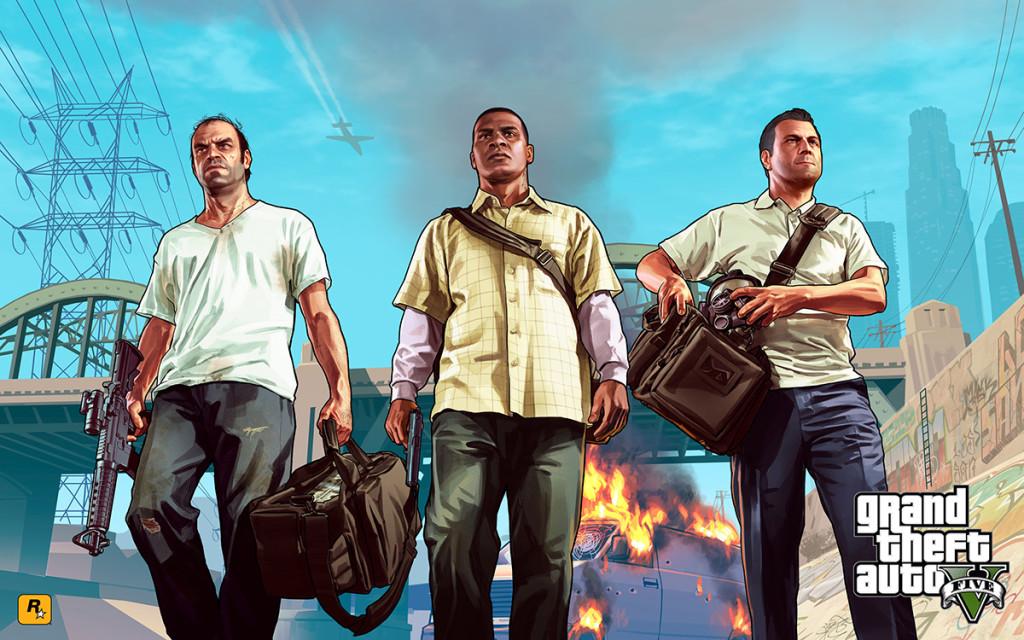Let’s get the obvious out of the way: Grand Theft Auto V is a good game. It’s very good.
Metacritic has accumulated 39 reviews for the Xbox 360 version and 36 reviews for the PlayStation 3 version with a combined score of 98/100 and 97/100, respectively. It has also shattered records by earning over 1 billion dollars in just three days, a feat that no other entertainment product has come close to matching. It’s gorgeous–the game-world is massive, the driving is a complete thrill and the gunplay mechanics are really well done.
But I’m unsatisfied by most of the reviews. I can’t help but compare reviewing a game like GTA V solely on its graphics and how well the mechanics review a book solely on its cover art and font legibility.
Discussing the game’s message beyond it’s overall thrill was emphasized when I told my older sister how amazing the game is, to which she shrugged and said that no matter how impressive the game is technically, she’s just not interested in a game about stealing care and killing hookers.
To be fair, she’s right. You can kill hookers in the game. You can also blow up cars, hold up liquor stores, hurt animals, do drugs and have sex with prostitutes along with other harmless activities like scuba diving, yoga, golf, skydiving, competing in triathlons and hiking a mountain originally inspired by our very own Mount Diablo. It’s probably accurate to say that most people–especially the little brats that nagged their parents to buy the game for them–got the game just for those features.
But developers at Rockstar Games have actually taken the opportunity to use the game to say something to captive audience. GTA V is first and foremost a satire of American culture. The Scotland-based developers cram sardonic humor not just into the plot and every line of dialogue, but also into every detail like stores called Ammu-Nation and Anna Rex, and of course the elaborate Facebook parody LifeInvader.
The three main characters of the game each criticize different facets of American life. The upper-middle class Michael struggles with a daughter whose only ambition is to be a celebrity and an unambitious son who does nothing but play video games and complain about his life, refusing to apply for jobs and still bemoaning being jobless.
Franklin struggles to be a poor young black man in a setting that coerces him to choose the lifestyle of gangs, dope slinging and spending his money on cars and clothes over aspiring to leave the ghetto. Trevor’s life is just scraps left over from years of untreated mental illness, childhood abandonment and meth. It would be hard for any three video game characters to better exemplify the failures of American society.
Beneath the veil of skydiving into swimming pools and going on tank rampages is an uncomfortable and unyielding message: your television idolizes idiots, glorifies violence and a demonizes sexuality. Your youth are either lazy, self-obsessed and entitled, or they’re buying into a superficial culture in which the only things that matter are drugs, vanity and reputation.
These themes make the game more than the sum of its pizazz into a creative work equaling any movie or book. Not every player will agree with the message, but every player will be confronted with it. Luckily, as harsh and bleak as the game’s message can be, its mode of delivery is genuinely funny and unrelentingly fun.






































































